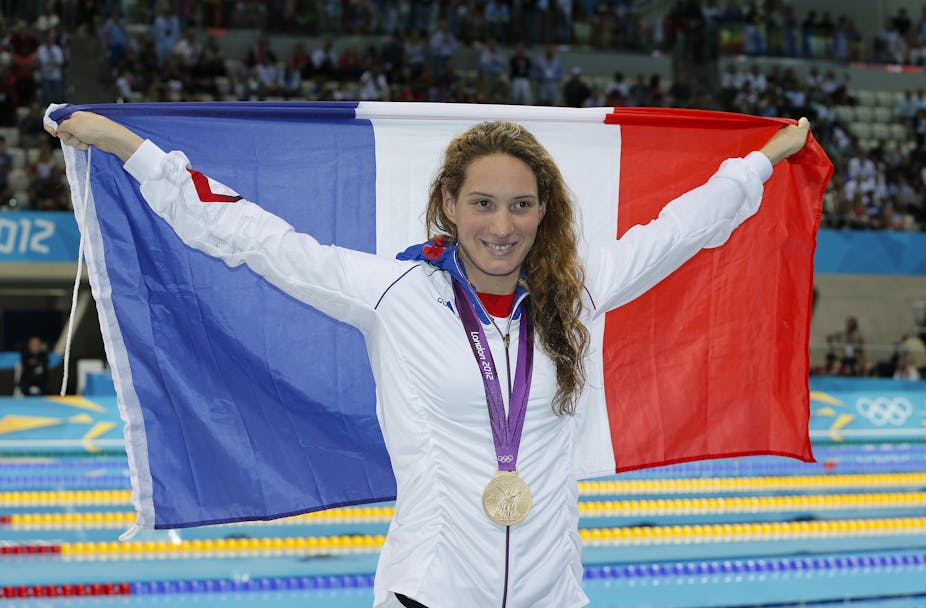France is in mourning after 10 people – including three of the country’s most celebrated sporting icons – died in a helicopter crash in Argentina. Swimmer Camille Muffat, boxer Alexis Vastine and yachtswoman Florence Arthaud were participants in a television survival show.
Since their deaths were confirmed, there has been an outpouring of grief in France. Muffat, Vastine and Arthaud all captured the imagination of the French public. Their fame shows that France celebrates its athletes a little differently to some of its neighbours. Where in the UK or Italy footballers rule the roost, in France, it is sometimes a different kind of athlete in the spotlight .
Muffat was a swimmer who beat French Olympic and world champion Laure Manaudou at the 2005 French championships while still a junior. She won gold, silver and bronze medals at the 2012 London Olympics.
French sports daily L'Equipe has described her as a “discreet champion”. This choice of words encapsulates the way French swimmers are often seen. They are respected and regarded as respectable. This is in stark contrast to the attitude the same paper has taken towards members of the French men’s national football team in recent years – sportsmen often seen as disrespectful and spoilt.

Muffat fulfilled her potential by winning three medals at the London Olympics. She also achieved fame outside sport too, and retired from competitive sport in 2014.

Vastine won the super-lightweight bronze medal in boxing at the 2008 Beijing Olympics but was eliminated in the same games and in London in 2012 after controversial decisions. French newspaper Le Monde sees him as “the cursed boxer of the Olympic games”. There had been suggestions that he had been troubled by depression and injuries after his bad luck in 2012. The accident in Argentina deprives him of the chance of ever winning Olympic gold.
At 57 years old, yachtswoman Florence Arthaud was from a different generation to the other two athletes. Heralded as a “pioneer” by _L'Equipe,_she broke the record for sailing solo across the North Atlantic in 1990. The same year, she won the famous solo yacht race the Route du Rhum.

Arthaud’s retirement in 2010 was tinged with regret and frustration. Twenty years on from her most significant succeses in 1990, a failure to obtain sponsorship led to the end of her professional career. Arthaud had shown considerable courage before and after her sporting career. In 1974, she survived a car accident that left her in coma and resulted in a six-month stay in hospital. In 2011, she survived a yachting accident off the coast of Corsica in which she fell from her boat.
The fact that Muffat, Vastine and Arthaud were in Argentina to participate in TF1’s survival show Dropped is testament to their star status. Their loss has shocked fellow participants in the show such as ice skater Philippe Candeloro and ex-Arsenal footballer Sylvain Wiltord.
TF1 boss Nonce Paoloni has branded the crash “a horrendous tragedy”. He also evoked the “great enthusiasm” shown by the athletes who had signed up to participate.
Le Monde referred to Dropped as “the biggest tragedy in the history of reality television” in an article detailing the extreme nature of the challenge contestants faced.
Whatever the cause of the helicopter crash, France has lost three sporting heroes. Muffat, Vastine and Arthaud achieved fame largely through swimming, boxing and competitive yachting. Such disciplines largely lack the glamour and riches associated with sports such as football and top-level athletics. This perhaps made Muffat, Vastine and Arthaud appear to be less flashy and, as such, more appealing to the public. It also heightens the poignancy and sadness that is being felt in France in particular following their loss.

